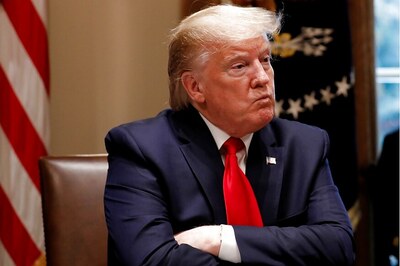
views
Hong Kong: The Asia editor of the Financial Times has been refused entry to Hong Kong, weeks after he was denied a new work visa in what critics call an ominous sign of Beijing encroaching on the semi-autonomous Chinese territory's civil liberties.
The newspaper reported that Victor Mallet was turned away at the border on Thursday after being questioned for several hours. He had sought to enter as a visitor.
Mallet's visa rejection in October came shortly after he hosted a talk at the Hong Kong Foreign Correspondents Club by the head of a now-banned political party advocating the financial hub's independence from China.
That brought heated criticism from the territory's pro-China elites, some of whom called for the journalists' organisation to be kicked out of its clubhouse in the central financial district.
Hong Kong's immigration authority has given no explanation for his expulsion and on Friday responded with a statement saying it would "act in accordance with the laws and policies and decide whether the entry will be allowed or refused after careful consideration of the circumstances of each case."
In Beijing, Foreign Ministry spokeswoman Hua Chunying said Hong Kong had the right to decide who could enter the territory.
"As you know, when people travel around the world, it is normal for every country to permit or reject a visitor's entry according to its law governing the administration of entry and exit," Hua said at a daily news briefing.
In a statement issued Friday, the Hong Kong Journalists Association said that in barring Mallet's entry, the government was "severely violating the freedoms of press and speech, and further damaging the reputation and status of Hong Kong as an international city," according to the newspaper South China Morning Post.
Pro-democracy legislators on the city council also expressed worries over the incident, saying the erosion of basic legal rights could harm Hong Kong's ability to attract foreign investment.
The denial of a visa to Mallet has been widely condemned by journalists, human rights and civic society groups in Hong Kong, who saw it as a sign of China's growing encroachment on freedom of speech in the city.
Concerns have also been raised by the apparent kidnappings and prosecutions in China of independent booksellers from Hong Kong and legal cases brought against pro-democracy legislators and organisers of large-scale anti-government protests in 2014.
Hong Kong was promised semi-autonomy for 50 years as part of its 1997 handover from British rule, allowing it to retain its limited democracy and rights to assembly and free speech that are denied on the Chinese mainland.
The Foreign Correspondent's Club is an institution dating back more than 75 years ago to when Hong Kong was a British colony.
At the August 14 talk at the FCC, Mallet introduced Hong Kong National Party leader Andy Chan by acknowledging official criticism while citing the territory's tolerance for dissent.


















Comments
0 comment